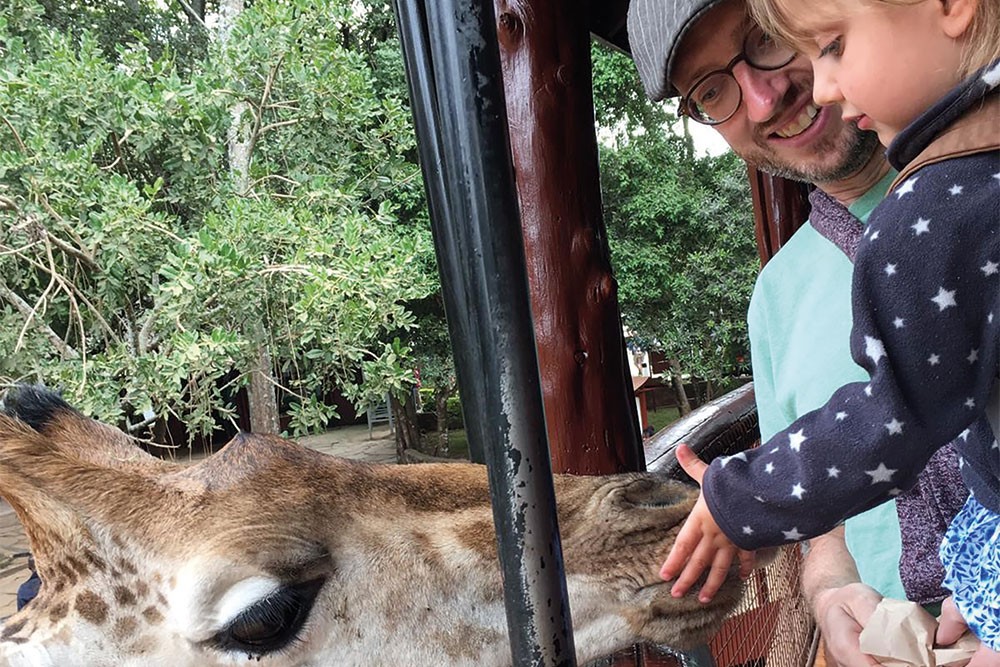
As a qualified accountant, you decide you need a break from the routine but want to give something back. So you sign up to volunteer with Accounting for International Development (AfID), the global organisation that provides volunteering opportunities for accountants at non-governmental organisations (NGOs). You take up your placement on the other side of the world and then realise that you have found your calling, that this is what you want to be doing – not just as a career break but for the rest of your life.
This is the experience of many ACCA members who volunteer with AfID and never look back, ultimately leaving their corporate roles for long-term careers in international development. An extraordinary 20% of AfiD’s volunteers become ‘career changers’, taking up a full-time position at an NGO.
The work we do is inspiring and important, whereas at a large corporate you often feel like a small cog in a big wheel
Take Arne Kuehl ACCA. After roles in practice and with corporations, Kuehl (originally from Germany) chose to volunteer with AfiD.
‘I was at a stage in my career where I felt that I needed a new perspective. Fulfilment in my job, rather than career progression, had become the most important thing for me,’ he explains. ‘Volunteering in 2016 for Kidogo in Kenya was to change my career and my life. I did not want to return to what I did before.’
Kuehl now works for German aid agency GIZ, leading its energy programme’s finance and admin team in Uganda. ‘I love my job. It’s the best role I’ve ever had,’ he says.
Amber Honey ACCA was also drawn to the development sector. ‘I had reached a point in my career where I was a little fatigued and wanted something different,’ she explains. ‘I was also determined to use the professional skills that I had developed in a tangible way, and AfID provided exactly that opportunity.’
Having volunteered in 2017 for the Children Might Foundation in Rwanda, Honey now works for Farm Africa, an NGO operating in East Africa. ‘The work we do is inspiring and important, whereas at a large corporate you often feel like a small cog in a big wheel,’ she says. ‘I think that is the main difference from my previous job.’
Previously in risk advisory at Deloitte, Honey now faces different challenges but feels there is more opportunity to be creative and see her ideas implemented across an organisation. ‘The work is definitely more difficult than it was at Deloitte, as there’s a lot of responsibility for management, direction and growth,’ she admits. ‘But with all the added responsibility, there is an inherent feeling that my opinion counts and that I am valued and heard.’
Kuehl says professional accountants can make a real impact. ‘Our qualification and practical experience as accountants from a developed country can add so much value. One of the biggest contributions I’ve made is in the capacity building of professionals within my team.’

Different challenges
The financial management tasks faced by those working in NGOs are often quite different from those in the corporate world. They include managing donor funds, which typically come from international institutions such as the European Union and the United Nations, or from national governments. Each donor will have their own complex requirements about how their contracts should be managed and reported on. What they will and won’t pay for, and how the project will be funded, is key. The NGO, for example, may be expected to pay upfront for a programme (for which it will be reimbursed later), which has huge ramifications for the NGO’s cashflow. Hence the need for financial expertise.
NGOs also seek experience in the case of full-time appointments. Volunteering gives a candidate an idea if the sector suits them, and will impress recruiters. ‘A pro bono placement at a charity overseas holds a significant amount of weight in applications,’ explains AfID spokesperson Jessica Jackson. ‘It shows a clear interest and commitment to the sector that is just as valuable as qualifications.’
AfID proactively assists volunteers who want to move into NGOs. It works with more than 50 organisations – including Oxfam, Save the Children and ActionAid – to link up with finance professionals.
However, there are real contrasts between working for an NGO and life in the corporate world. ‘The biggest difference for me is working in an environment focused on successful sustainable development, with a very diverse team of Ugandan and German colleagues,’ Kuehl says.
The valuable and varied experience will certainly enhance any CV, but above all else comes the uplifting nature of the work. Kuehl saw at Kidogo how good financial management made a huge difference to schemes. ‘I’m constantly seeing things in new ways, and problem-solving, without it feeling like it’s a chore. It offers different perspectives and opportunities.’
Using your skills for the benefit of others often involves some degree of sacrifice. For a start, pay is less in the NGO sector, and the work on location can be very challenging. Honey warns: ‘It’s not for the faint-hearted – you need to be resilient.’
She recommends testing the waters with a volunteer stint first. ‘Be prepared not simply to change your career but also yourself in the process.’
Kuehl recommends speaking to people in the sector, and finding out about the countries you could go to. ‘There’s definitely more to regret if you don’t try it than if you do. Just go for it.’
